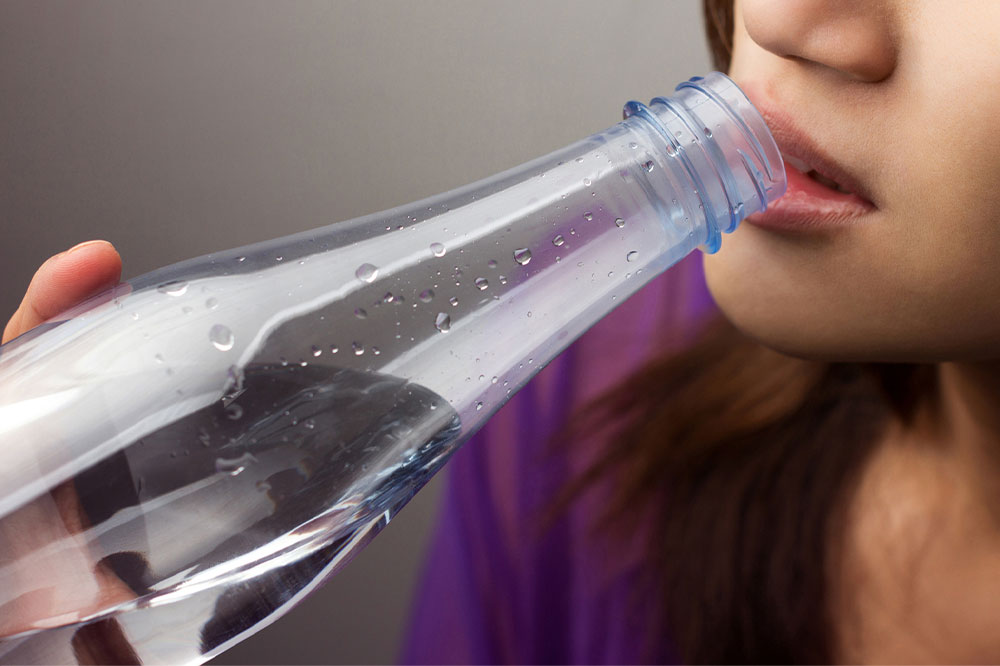8 side effects of inadequate water intake

Water is one of the vital elements for a person’s survival. Apart from the fact that it makes up about 60% of the body, water is key to the functionality of all systems in an individual. For example, water helps optimize blood circulation, ensuring that all the organs and parts of the body receive the necessary nutrients and oxygen to run efficiently. Here are some side effects of inadequate water intake:
Persistent headaches
Not drinking enough water during the day is particularly bad for people with migraines and other headache-driven health conditions. Not consuming water for long periods either causes headaches or makes them worse. The pain can get to throbbing and ear-splitting levels, seriously affecting a person’s ability to perform tasks. This is why healthcare experts advise people suffering from headaches to drink a few glasses of water and rest to relatively and gradually calm down the pain. On average, it takes about two to three hours to reduce a headache after one consumes water.
Insufficient water intake is directly related to water not reaching the brain area, causing these throbbing headaches. Therefore, it is always handy to always keep a water-filled bottle by one’s side.
Disturbances of fluid balance
An inadequate intake of water and fluids tends to thicken the blood over a period of time. This creates an imbalance of fluids in a person’s body. The thickening of blood forces a person’s heart to work much harder than normal to circulate oxygen, electrolytes, and nutrients to all parts of the body through the blood. As a result, people who consume less water are more likely to suffer cardiac arrests and other cardiovascular issues, all caused by rampant fluid imbalance.
What’s more, overworking one’s heart also makes people feel tired faster. To avoid all these nasty outcomes, drinking a glass of water every hour (or at least every couple of hours) is advisable for people of all ages.
Wrinkled skin
Moisture is the main ingredient for healthy and elastic skin. One of the main side effects of not drinking enough water (about three to four liters a day) is wrinkled and dry skin. When that happens, the skin loses flexibility and elasticity due to obstructed blood flow. This, in turn, results in the skin not regenerating naturally at regular intervals.
One should keep the fluid intake high to avoid issues like wrinkles, saggy skin, fine lines, and an aggravation of skin aging.
Mental fog
Occasionally, everyone experiences mental fog, a condition in which one cannot focus on a task at hand and think clearly due to a permanently clouded head. This happens when the brain (made up of water up to 73%) does not get the hydration it needs to function properly. Most importantly, a lack of hydration affects one’s working memory, the part of one’s memory system that facilitates motor-related tasks by the brain. One of the earliest signs of dehydration is a distinct lack of mental sharpness and working memory.
Mood changes and increased hunger
Although it may seem strange, a person’s emotions are greatly affected by their level of hydration. In fact, excessive irritability is a symptom of not drinking enough water and fluids. Due to the adverse effects of dehydration on a person’s brain, a person’s emotions, such as anger, confusion, depression, hostility, and tension, increase manifold when they do not consume adequate amounts of water on a regular basis. In fact, the worsening of these emotions and mental phases is linked to as little as 1% dehydration. Unsurprisingly, many healthcare experts advise people in a negative frame of mind to consume a few glasses of water and focus on something else to calm them down.
Dehydration can lead to a significant increase in appetite. When people are dehydrated, they may confuse their thirst with hunger, leading to overeating in an attempt to satisfy their craving. However, overeating usually does not help, and people end up consuming even more food. So, the next time one feels extreme hunger that does not go away, one must attempt to calm it down by consuming a few glasses of water.
Constipation
Consuming sufficient amounts of water enables the water receptors in a person’s colon to pull water from the bloodstream to the intestines. This process softens and bulks up one’s stools. As a result, when one drinks enough water in a day, it improves the body’s digestive process and facilitates bowel movements.
On the other hand, if a person does not drink enough water throughout the day, their stools will jam up in their intestines and colon and cause chronic constipation, cramps, and stomach pains.
Frequent illness
Keeping the body hydrated by drinking enough water is an effective method for eliminating toxins from the body. These toxins are often the drivers of disease and infections. So, in a way, drinking enough water helps a person’s immunity throughout the day. Therefore, a lack of adequate hydration results in people falling ill more frequently due to the presence of toxins within their bodies for longer periods.
Kidney issues
When people drink enough water throughout the day, their kidneys function normally. However, when that does not happen, their kidneys retain large amounts of fluid to maintain their functioning. This results in a drastic reduction in the number of times one urinates throughout any given day. Over time, a lack of hydration can negatively impact kidney health. This is because dehydration can cause the buildup of toxins in the bloodstream, which ultimately puts a strain on the kidneys.
Proper water intake is crucial for the body to function well and can positively impact one’s mood. Frequently, individuals who suffer from significant kidney damage come to the realization that they have been neglecting their water intake for a considerable period of time. If one does not enjoy plain water, one can add some flavor to it by infusing it with cucumber, mint, citrus fruit, or berries.


